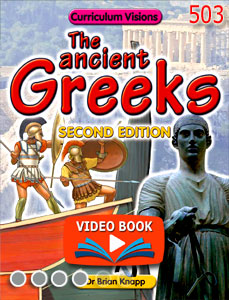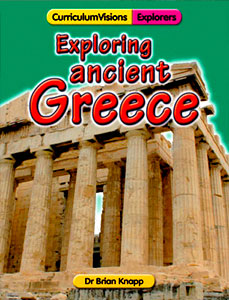Sparta and Athens were the biggest and most powerful of the Greek cities – and they had completely different ideas of how to live.
Athens, just a few kilometres from the sea, is now the capital of modern Greece. In ancient Greek times it was the richest city in Greece, based on trade using its fleet of ships. Sparta was a city in the southernmost part of the Greek mainland. Unlike Athens, Sparta was not near the sea. So it developed an army, rather than a navy.
Fighting Spartans
In the early part of the 6th century Sparta was defeated by neighbouring cities and the people decided that this was because, as people, they were too weak and not fit enough to defend themselves. So, from that time, the idea of extreme fitness and a city of soldiers developed.
Sparta chose not to have walls to defend itself. Without walls people knew they had to be tough and well trained all of the time – including women and children.
You can see how this made Sparta a very different place from Athens. No grand buildings, art and writing here. Instead it looked like a group of villages with a lean and mean military rule that everyone else feared. This was also important because Sparta controlled a bigger state than any other city – and much of it had been captured from its neighbours, so there was always the risk of rebellion.
The city of Sparta was like one vast army. It put fitness and strength ahead of reading and the arts, so the people left no written records of themselves.
In the writings that have come down to us, there is hardly a good word to be said for the Spartans, but this is less surprising when we realise that all of this writing was done by their arch-rivals, the Athenians. The Spartans believed their way was the best, and many of their Greek neighbours agreed with them.
Growing up in Sparta
The ordinary Spartan was essentially a soldier, trained to obey and endure. Shortly after birth, children were brought before the elders of the state, who decided whether it was to be reared or not. If found sick or weak, the baby was dropped off a cliff called the Place of Rejection, or left to die in the mountains. In this way the Spartans followed the rule of the Survival of the Fittest.





